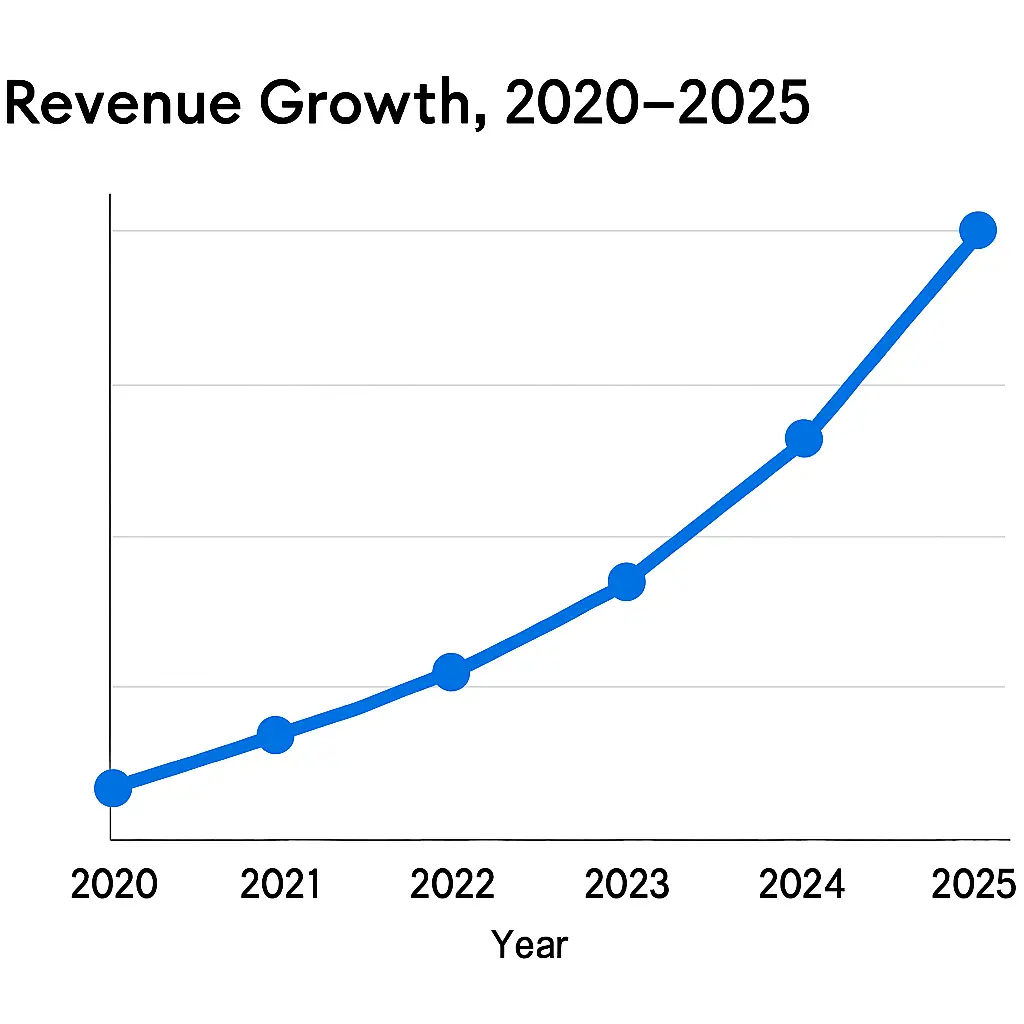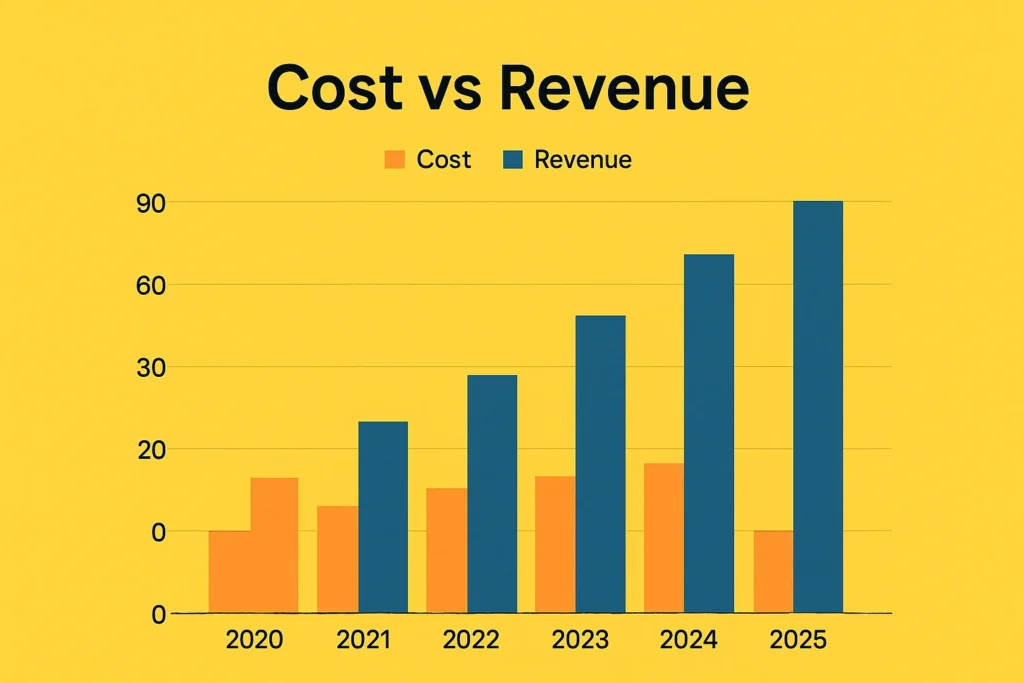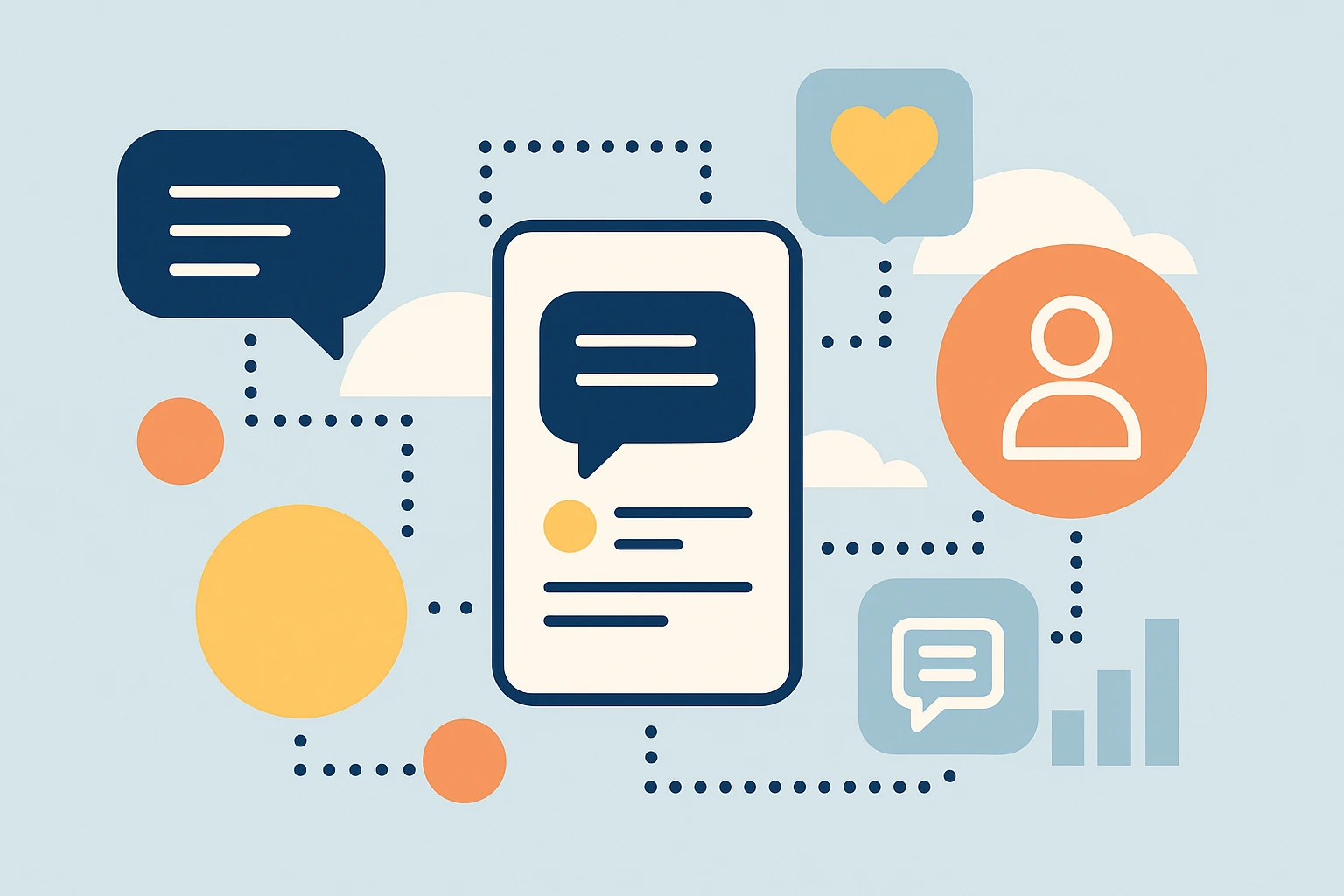Microblogging platforms surpassed $11.2 billion in global revenue in 2024, and the upward spike continues into 2025 as more users shift to decentralized social networks, creator-first platforms, and niche micro-communities. For entrepreneurs, understanding how a microblogging clone app can generate revenue is crucial — especially as new entrants out-innovate traditional giants. With Miracuves helping founders build microblogging apps in record time, the opportunity to replicate and improve monetization strategies has never been greater.
Microblogging App Revenue Overview – The Big Picture
Microblogging platforms as a category grew 17% YoY entering 2025, driven by paid creator features, targeted advertising, and premium memberships.
Global revenue (2024): ~$11.2B
Expected revenue (2025): ~$13.1B
Valuation of top microblogging apps: Ranges between $20B–$35B
Market position: Microblogging remains the fastest-growing segment in social media due to short-form engagement.
Regional breakdown:
– North America: 48%
– Europe: 22%
– Asia-Pacific: 26%
– Others: 4%
Profit margins: Mature platforms operate around 35%–42% gross margins depending on ad efficiency.

Primary Revenue Streams – Deep Dive
Revenue Stream #1: Advertising (Display, Native, Video Ads)
How it works: Brands pay for ad placement in feeds, profiles, search results, and trending topics.
% of total revenue: ~58%
Pricing:
– CPM: $3–$18 depending on region
– CPC: $0.20–$1.40
Trend: AI-driven ad targeting pushes ad revenue up 10–15% YoY.
Example: A microblogging clone app with 1 million MAU can generate $150k–$350k/month in ad revenue.
Revenue Stream #2: Premium Subscriptions (Ad-free, Priority Profile, Analytics)
How it works: Power users pay monthly subscriptions for enhanced visibility.
% of total revenue: ~22%
Pricing: $4.99–$12.99/month
Trend: Subscriptions are growing faster than ads due to privacy-focused users.
Example: If 3% of users subscribe at $8/month → $240k monthly.
Revenue Stream #3: Creator Monetization (Tips, Paid Posts, Paid Replies)
How it works: Users pay creators directly; platform takes a fee.
% of revenue: ~8%
Commission: 5–20%
Trend: Creator tools generate small but consistent high-margin revenue.
Revenue Stream #4: API Access & Enterprise Tools
How it works: Developers pay for data access or automation tools.
% of revenue: ~7%
Example: API tiers at $99–$499/month.
Revenue Stream #5: Marketplace & Microtransactions
Includes:
– Stickers
– GIF packs
– Profile themes
– Comment boosts
% of revenue: ~5%
Trend: Popular in Asia and creator-heavy segments.
Revenue streams percentage breakdown
| Revenue Stream | % Contribution | 2025 Trend |
|---|---|---|
| Advertising | 58% | Stable but competitive |
| Subscriptions | 22% | Fastest growing |
| Creator Tools | 8% | High-margin |
| API/Enterprise | 7% | Rising demand |
| Microtransactions | 5% | Niche but profitable |
The Fee Structure Explained
User-Side Fees
– Monthly premium subscription
– Comment boost fees
– Post promotion fees
– Pay-to-unlock content
– Creator tips
Provider/Creator Fees
– Commission on earnings (5–20%)
– Payout processing fees
– Promotion/visibility packages
Hidden Revenue Tactics
– Boosted trend rankings
– Algorithmic visibility placement
– Regional price optimization
Regional Price Variations
Premium prices are highest in NA & EU and lowest in India, SEA, LATAM.
Complete fee structure by user type
| User Type | Fees | Notes |
|---|---|---|
| Free User | None | Ads shown |
| Premium User | Monthly fee | Unlocks upgrades |
| Creators | Commission share | Revenue split model |
| Developers | API fee | Monthly subscription |
How Microblogging Clone Apps Maximize Revenue Per User
Segmentation: Power users, creators, basic users, businesses.
Upselling: Premium previews, first-month discounts.
Cross-selling: Ads + subscription bundles.
Dynamic Pricing: Behavior-based subscription pricing.
Retention Monetization: Streak rewards, engagement badges.
LTV Optimization: Annual plan incentives.
Psychological Pricing: $4.99 instead of $5.
Example: Platforms implementing creator tools see a 14% increase in daily active revenue.
Miracuves integrates all these models into microblogging clones so founders can monetize from day one.
Cost Structure & Profit Margins
Major cost categories:
– Infrastructure & Hosting
– AI moderation tools
– Marketing & CAC
– Salaries & Engineering
– R&D for new features
Unit economics:
Acquisition costs can range from $0.40–$2.10 per user depending on market.
Path to profitability:
Clone apps built with Miracuves achieve profitability faster because infrastructure and features are prebuilt.

Future Revenue Opportunities & Innovations
– AI-powered content recommendations
– Paid AI writing assistants
– Video-first micro-posting
– Voice tweet monetization
– Niche-language community monetization
– Blockchain-based creator payouts
2025–2027 predictions:
– Subscription revenues will grow by 30–35%
– AI features will add new premium layers
– Decentralized microblogging models will emerge
Threats: intensifying competition, content moderation laws
Miracuves helps entrepreneurs overcome these by offering ready-made compliance modules and scalable systems.
Lessons for Entrepreneurs & Your Opportunity
What works:
– Hybrid revenue (ads + premium + creator tools)
– Low-cost microtransactions
– API licensing
What to improve:
– Focus on niche communities
– Community-first moderation
– Automated creator payouts
Market gaps:
– Hyperlocal micro-communities
– Industry-specific microblogging
– Creator-first microblogging
Want to build a platform with microblogging’s proven revenue model? Miracuves helps entrepreneurs launch revenue-generating microblogging clone apps with built-in monetization features. Our solutions let you customize ads, subscriptions, creator tools, and API revenue models. Many clients start earning within 30 days. Get a free consultation to plan your revenue strategy.
Final Thought
Microblogging clone apps can become powerful revenue machines when the monetization is designed from the ground up. With Miracuves’ ready-made frameworks, founders can launch quickly, run lean, and start earning from day one with far less risk.
When creators, communities, and conversations flow in real time, the platform turns into a living ecosystem. Features like premium badges, priority reach, ad placements, and creator subscriptions can stack into a steady income stream without overwhelming users. The trick is to keep the experience light, social, and addictively simple.
Miracuves makes this even easier by handling the heavy lifting behind the scenes. Their prebuilt modules for feeds, ads, subscriptions, wallets, and moderation create a strong spine for any microblogging platform. Entrepreneurs can focus on growth, branding, and user experience, while the tech foundation stays fast, secure, and ready to scale.
FAQs
1. How much does a microblogging clone app make per user?
Typically $1–$5 ARPU monthly depending on ads and subscriptions.
2. What’s the most profitable revenue stream?
Advertising remains dominant, followed by subscriptions.
3. How high are creator commissions?
Most apps take between 5–20% of creator earnings.
4. How does pricing compare to top microblogging apps?
Clone apps can offer similar or lower pricing to attract early adopters.
5. Has the microblogging revenue model evolved?
Yes, 2025 models focus more on subscriptions and AI tools.
6. Can small apps use similar models?
Yes, especially with Miracuves-ready monetization modules.
7. What’s the minimum scale for profitability?
100k–250k monthly active users depending on ad fill rates.
8. How to implement these revenue models?
Structure around ads, subscriptions, creator payments, and API tiers.
9. What are alternatives to this model?
Membership communities, paid groups, enterprise platforms.
10. How quickly can microblogging clone apps monetize?
With ready-made solutions from Miracuves, platforms can start monetizing in just 3–6 days with guaranteed delivery, ensuring a fast launch and immediate revenue generation.








